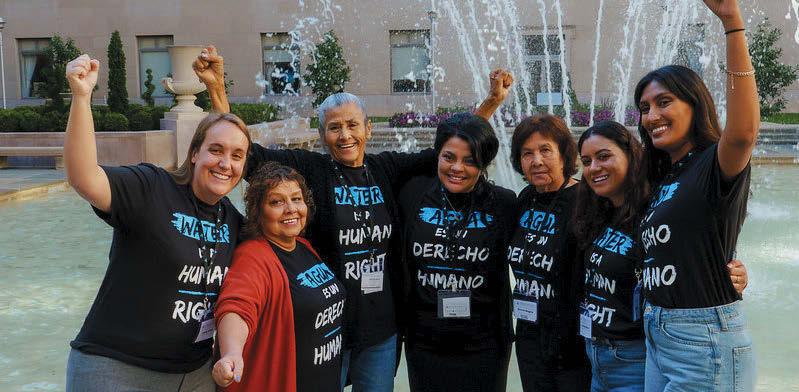
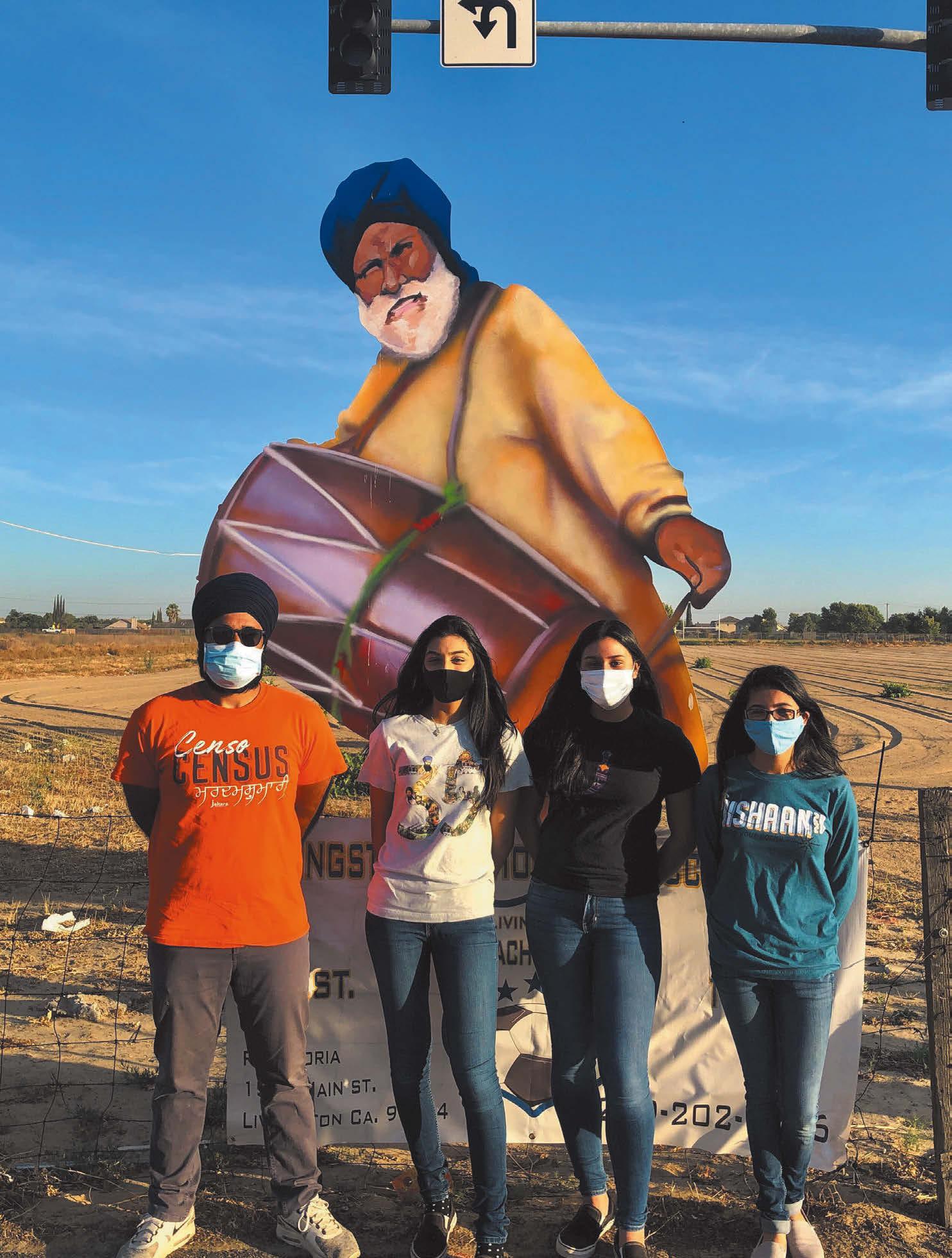
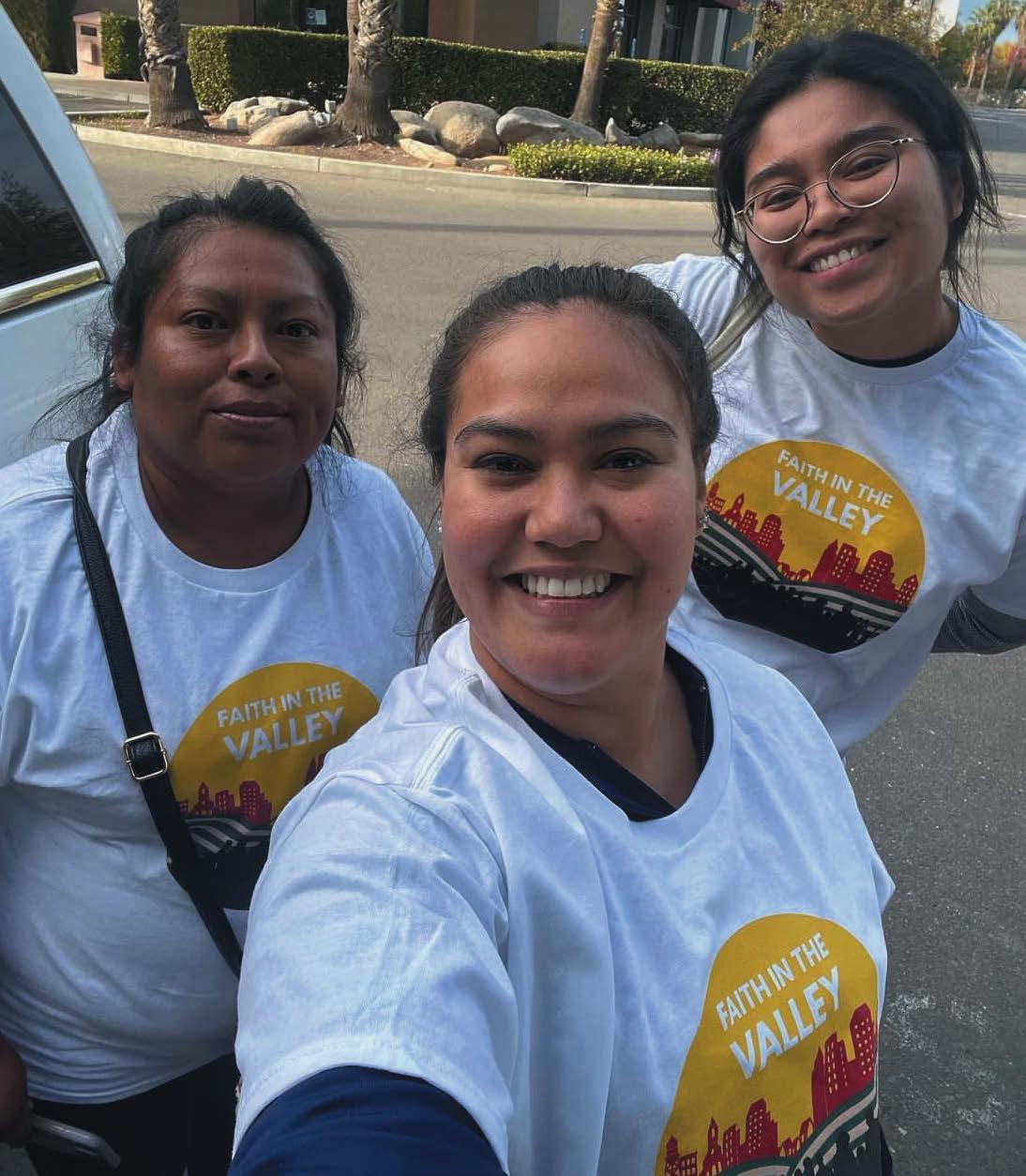




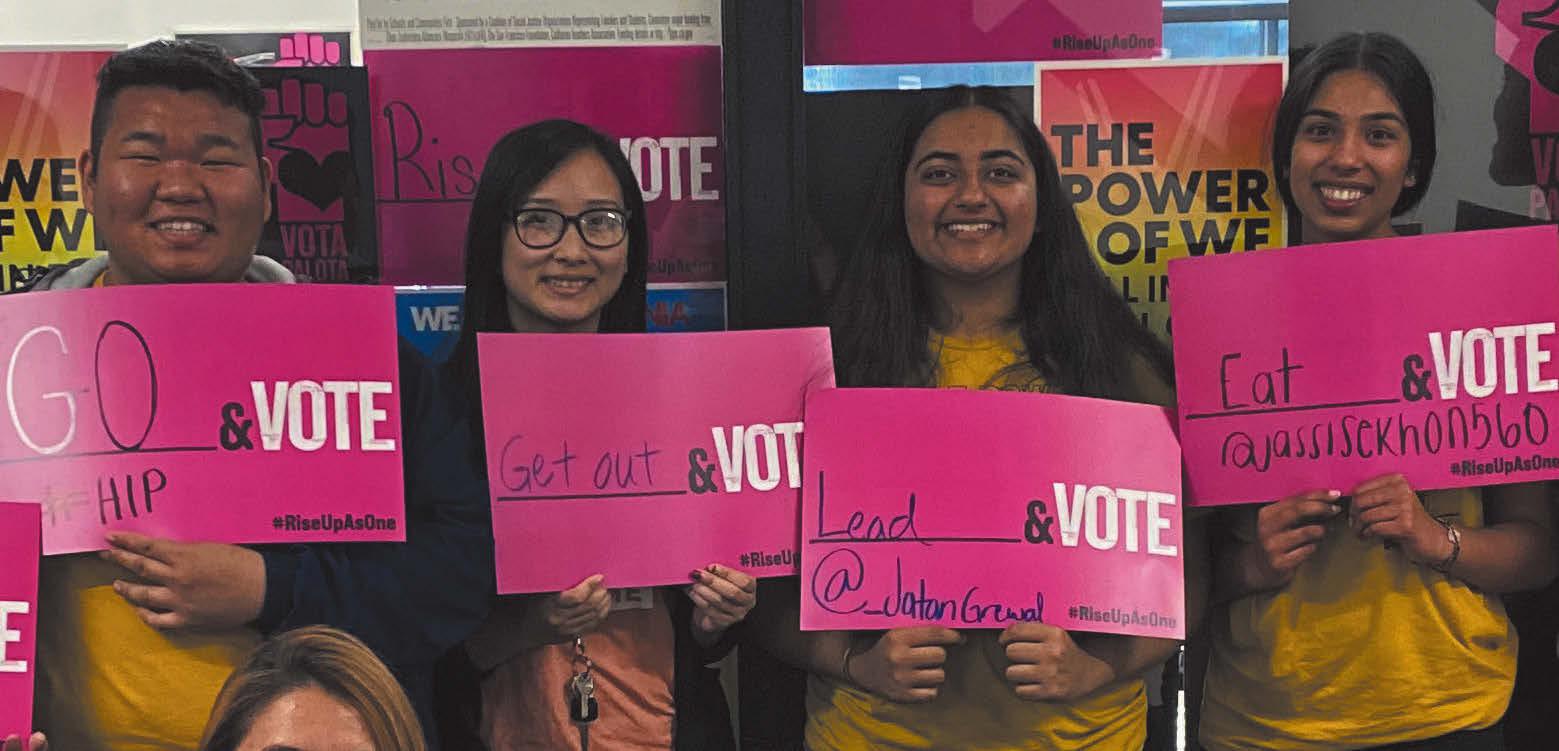
MOVE the Valley coalition takes a collective approach to act, vote, and lead in the Central Valley
BY KEN SMITH
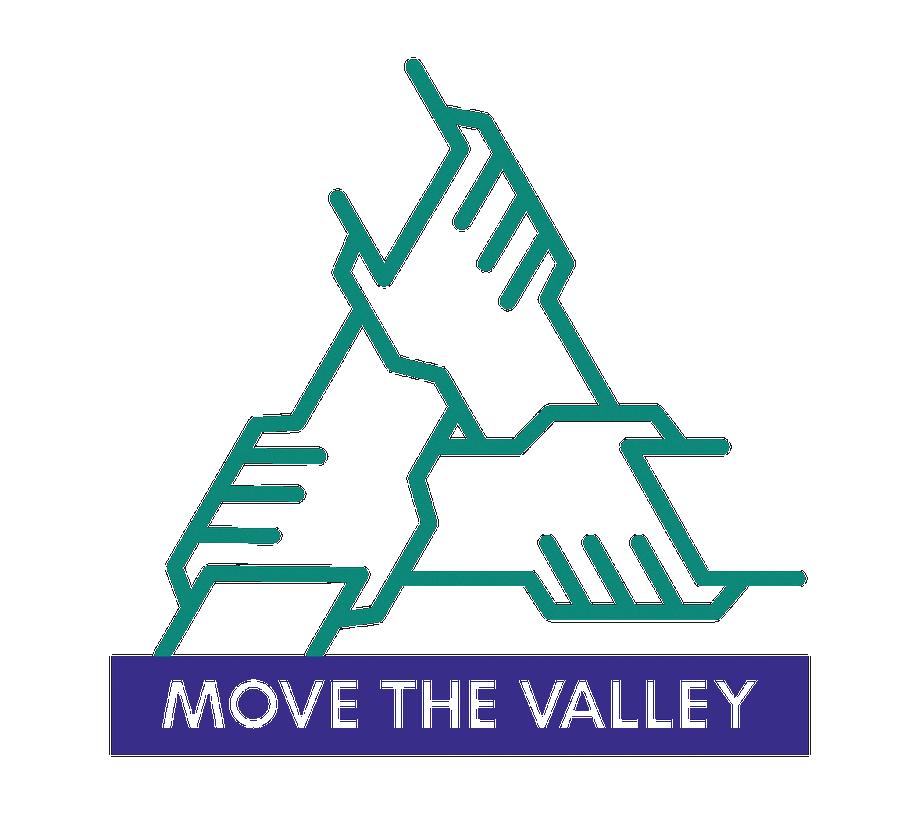
Embracing our diversity to empower the marginalized/disenfranchised of the San Joaquin and Sacramento Valleys to ensure electoral power, responsive government, and community voice where all families thrive and find belonging.
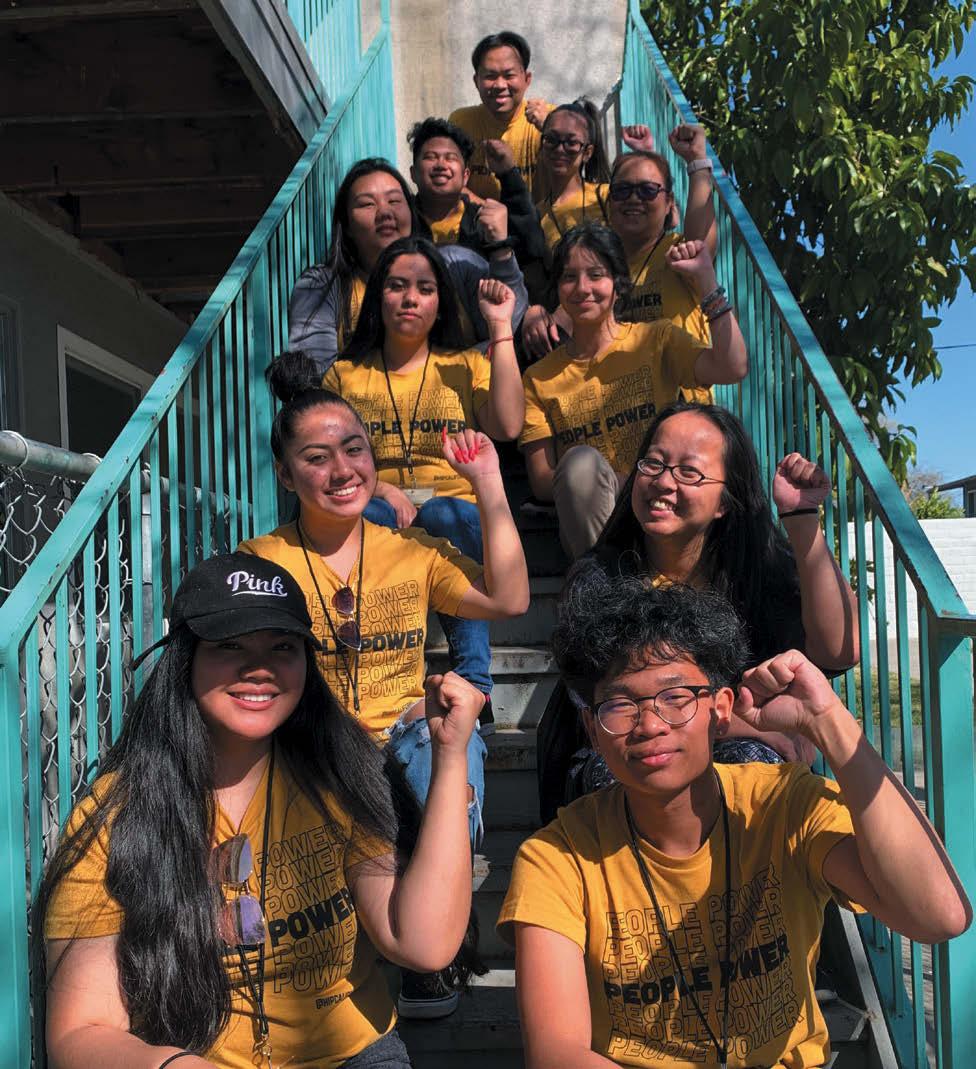
“I feel like every day there’s a news headline about a new policy or action coming down from the White House that directly impacts our most vulnerable and historically marginalized Valley families and neighborhoods,” says Mai Thao, executive director for regional community-based coalition MOVE the Valley.
“Many people I speak to are alarmed by what they perceive as erosion of democratic norms, including efforts to limit civil rights, restrict inclusive policies, or challenge long-standing principles of equity and access.”
Since the age of 14, when she first volunteered to canvas in support of Fresno City Council candidate Blong Xiong, Thao has been dedicated to affecting positive change through organizing, policy change and direct action. Xiong became the first AsianAmerican and Hmong council member in her hometown, and Thao, the daughter of refugees, has since served as a political community organizer in the labor movement; in various positions at community-based and nonprofit organizations; and in state government, most recently with the Office of Community Awareness, Response and Engagement (CARE) under California Attorney General Rob Bonta.
MOVE the Valley is a coalition of non-partisan community-based organizations with the collective goal of increasing civic participation in California’s Central Valley.

“What makes MOVE really special is that it’s a dynamic coalition,” Thao says. “We have organizations, all with the same values, working with an array of ethnicities, languages, and ages. We come together to plan out how to organize across cultures, languages, and even generations, because at the end of the day the various community bases that we’re working with live in the same neighborhoods and are struggling with the same issues—we all share a common future.”
“We don’t want community members to lose hope that people power is still at the core of our democracy.”
Mai Thao Executive Director, MOVE the Valley
The MOVE in the moniker stands for “Mobilize, Organize, Vote, Empower,” and its focuses include integrated voter engagement, voting rights advocacy, and get out the vote (GOTV) efforts within historically marginalized and excluded neighborhoods. MOVE’s partner organizations work in nine counties, from the southern end of the San Joaquin Valley to the state capital.
Thao believes in the strength that lives in each person. “We don’t want community members to lose hope that people power is still at the core of our democracy. We want them to feel that change is not only possible, it’s already in motion.”
Socio-political issues like those that concern MOVE The Valley tend to be evocative—they can incite great passion in the people they affect and are easily illustrated through anecdotal and qualitative evidence. But to properly carry out its vision and mission and best represent the people it aims to serve, the organization’s efforts are also driven by data.
When asked to choose which issues have most negatively impacted their household from a field of choices, respondents top three picks were:
Following is more information gleaned from respondents who chose those categories as their greatest concerns.
More results from the most recent Fresno Speaks survey can be found at www. movethevalley.org/sjvspeaks. More results from the larger 2023 survey can be found at MOVE’s website and at dataforsocialgood.org/ research-san-joaquin-valley/.
From 2020 to 2022, MOVE partnered with the UC Merced Community and Labor Center to conduct annual “Fresno Speaks” surveys in order to gauge the greatest concerns among that city’s residents. Concerns over the COVID pandemic dominated those surveys for the first two years, but the top five issues in 2022 were: housing (20.5%); homelessness (18.4%); crime and gun Violence (16.9%): infrastructure, sidewalks, street lights (12.5%); and air quality/environment (10%).
80% said rent and home prices are too high in their community.
Homeowners accounted for 55.4% of respondents, in line with the California state average of homeowners (55.6%).
White, male, and Republican respondents were statistically more likely to own a home
Homeowners claim the greatest benefit to owning a home is financial stability and the ability to accumulate wealth.
Non-homeowners cite home affordability and current income as barriers to homeownership
Respondents 18-35 were statistically more likely to rent or live with their family.
BY KEN SMITH
In 2023, MOVE upped its information-gathering efforts by partnering with Data for Social Good (DSG) to conduct a survey across the San Joaquin Valley. From November 9 to December 3, 2023, 2,616 respondents from Fresno, Merced, Sacramento, San Joaquin, Stanislaus, Madera, Kings, Kern, and Tulare counties completed the survey by email or phone, making it the largest and most exhaustive Central Valley study conducted in two decades.
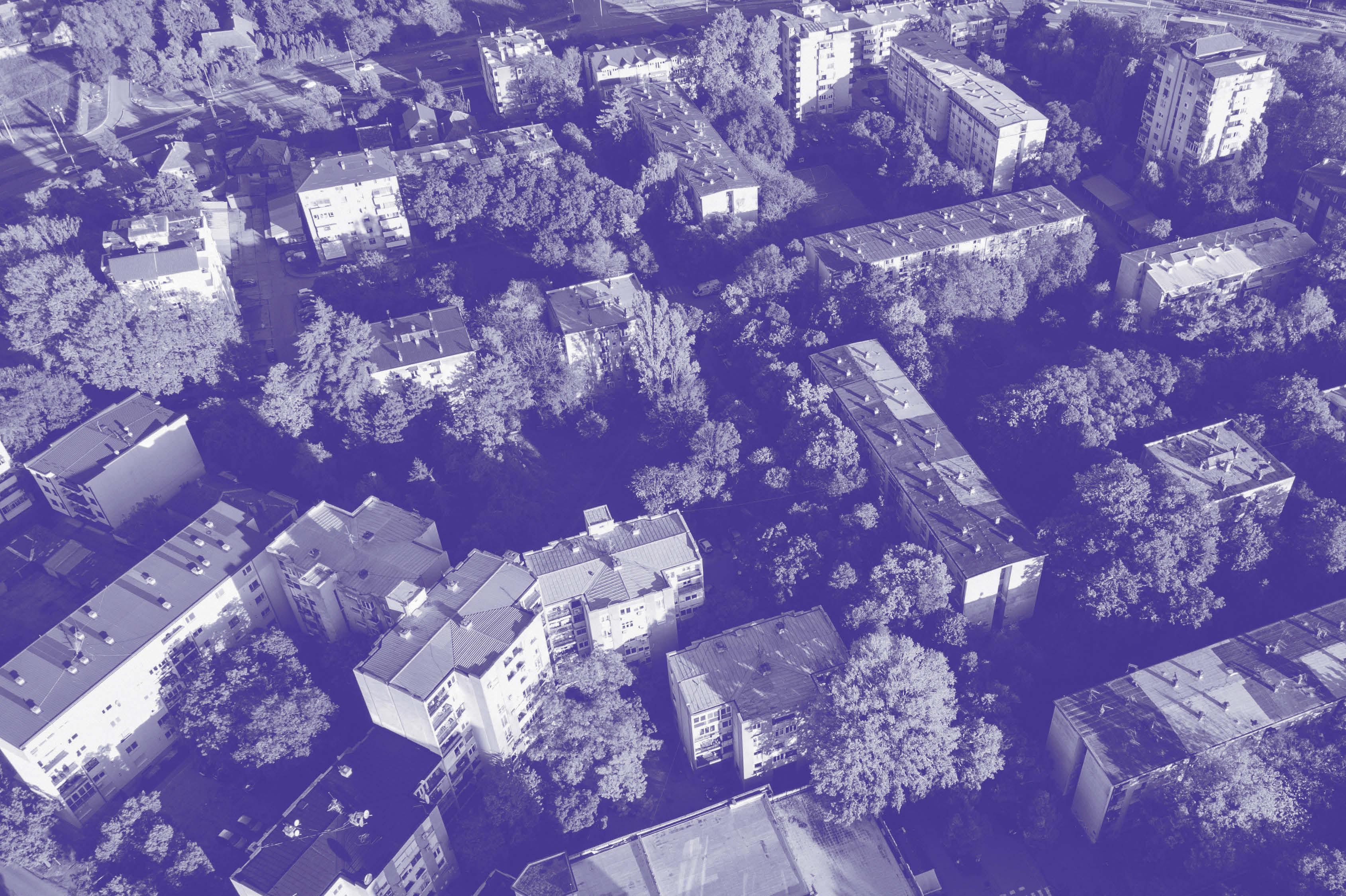
65.8% are concerned with the amount of potholes in their community.
15.6% believe that the sidewalks in their neighborhood are inadequate.
12.6% find the lack of functioning streetlights concerning.
37.8% believe that their education system fails to prepare students to transition into the workforce.
28.3% do not think there are enough entry-level jobs to support the youth within their community.
BY KEN SMITH
Across California, Latina women are emerging as pivotal decision-makers whose votes will significantly shape the state’s political landscape. Accounting for one in every six registered voters in the state, Latinas hold immense potential to influence critical issues, including affordable housing, clean water, reproductive rights, healthcare, education, and economic stability.
Communities for a New California Education Fund (CNC EF) has recognized this strength and launched the Lúcete Latina initiative, designed to center the needs of Latina voters, ensuring their voices are not only heard but amplified during the public policy-making process and election season. Rooted in the understanding that Latinas are the heartbeats of their families and neighborhoods, Lúcete Latina addresses their challenges and aspirations, engaging them authentically and consistently.
economic stability follow closely, with 61.5% feeling the weight of an unsustainable cost of living. These figures underscore the financial realities that Latina women and their loved ones navigate daily.
Anna Lisa Vargas, a lead community organizer with CNC EF, illustrates how meaningful engagement sparks tangible community changes.
“Civic engagement is at its strongest when we
“From healthcare and climate action to family reunification, Latina voters are pivotal in driving policy change that affects our daily lives.”
Melissa Vargas Senior Policy Advisor, Communities for a New California Education Fund
“Engaging Latinas is not just about numbers, it’s about recognizing their power to uplift entire neighborhoods and cities,” says Melissa Vargas, CNC EF’s senior policy advisor. Melissa, a first-generation daughter of Colombian immigrants, emphasizes how personal experiences inspire broader advocacy. “From healthcare and climate action to family reunification, Latina voters are pivotal in driving policy change that affects our daily lives.”
Housing remains the most pressing concern among Latina voters. According to recent polling by CNC EF, 54% of California Latina voters identified high rents as their top housing concern. Jobs and
participation and genuine representation in local government decision-making.
Beyond immediate needs, CNC EF’s Lúcete Latina initiative promotes a vision of civic empowerment where Latinas see themselves as essential participants in democracy. Through extensive, non-partisan door-to-door canvassing, phone banking, and educational campaigns, CNC EF builds trusted relationships, highlighting the direct connection between voting and an improved quality of life.

involve families and neighborhoods directly in decision-making processes,” she says. “When residents speak up, they shape policies around air quality, housing, and environmental justice. That’s the core strength of the Lúcete Latina campaign.”
Anna Lisa’s extensive organizing work includes advocating for healthier communities through initiatives such as AB 617, addressing air quality, and championing affordable housing through the Lift to Rise Resident Leadership Table. Her efforts underscore the importance of grassroots


Melissa’s experience navigating systems for her immigrant family echoes the experiences of many Latinas. She believes deeply in the moral imperative of advocacy: “My compass has always been, ‘¿Le puedo ayudar? Can I help you?’ Civic engagement allows Latinas to turn challenges into collective opportunities.”
The Lúcete Latina initiative bridges personal stories with civic engagement, spotlighting the profound influence Latinas wield at the ballot box. As CNC EF continues engaging this powerful voter bloc, the call is clear: Latina voters have the power to shape a future reflective of their values, needs, and dreams.
“Together,” says Anna Lisa, “we ensure our families not only survive but thrive, informed by our voices and sustained by our votes.”


Woman finds support from Valley Watch Network after her husband is detained by ICE and threatened with deportation
BY DORSEY GRIFFITH
On Feb. 19, a man emerged from a white minivan, knocked on Elizabeth and Delfino Alfredo Naranjo García’s car window and—without producing any identification or documentation—informed them that Delfino was under arrest because he was wanted by the law in his native country of Mexico. The Patterson couple was confused. Delfino, who has lived in the U.S. for nine years, told the man that he had never committed a crime in Mexico. It was only after Elizabeth pressed the man that he acknowledged he was a federal immigration enforcement officer, and that Delfino was being taken into custody, apparently because of his immigration status.
That was just one month after the second inauguration of Donald Trump, who declared an “invasion” of “aliens” and whose U.S. Immigration and Customs Enforcement (ICE) had begun conducting raids and mass deportations.
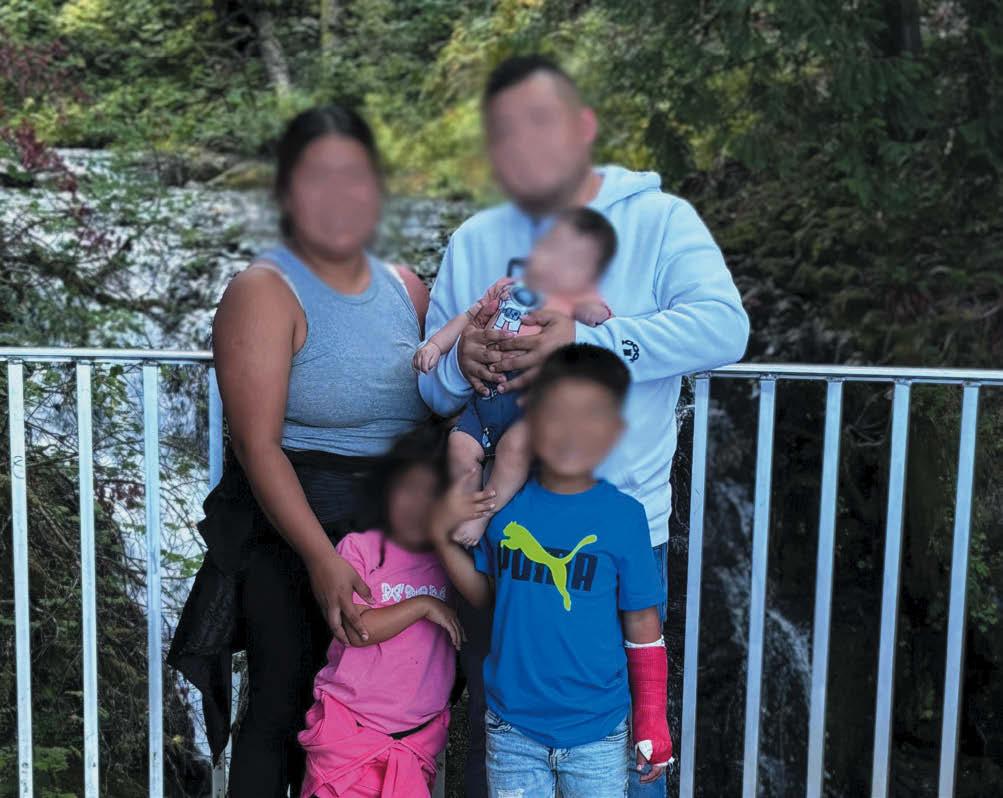

Stunned and frightened, one of Elizabeth’s first calls after her husband’s arrest was to Faith in the Valley’s (FIV) Valley Watch Network.
The grassroots Central Valley organization supports immigrants and communities across the region by teaching them about their rights and how to advocate for themselves and their communities. The Valley Watch Network is a rapid response system of volunteers, including hotline dispatchers, legal observers and connections to other support.
Griselda Rojas is an organizer with FIV based in Stanislaus County. She immigrated to California with her parents at age 6. Her parents worked in peach and almond orchards, and she was the first in her family to graduate from college.
Since joining FIV last year, Rojas has been building community relationships and holding workshops at area schools and businesses to
“There is not much I can do or that he can do. There are moments I break down. My kids are so attached to my husband. They are really worried about Dad. The first month was the toughest of our lives.”
Elizabeth Naranjo García Wife of ICE Detainee
offer guidance concerning ICE encounters. Some common tips: Never run or get agitated; make sure the officer has a warrant signed by a district court judge within the past 14 days; and provide only your name and date of birth.
Rojas picked up Elizabeth’s call for help.
“She told me what happened to her husband, and through our network she was connected to an attorney,” Rojas says. “We also connected her with organizations in Patterson and Modesto for some mutual aid—financial assistance, food vouchers, diapers and wipes.”
Delfino had been taken to the Golden State Annex, an immigrant detention center in McFarland, north of Bakersfield, where he remains. Elizabeth is waiting to learn if her husband is eligible for bond.
“There is not much I can do or that he can do,” says Elizabeth, who is in the U.S. on a non-immigrant U visa, which is granted for victims of certain crimes. “There are moments I break down. My kids [ages 6, 4 and 11 months] are so attached to my husband. They are really worried about Dad. The first month was the toughest of our lives.”
For now, she is trying to hold it together, commuting to her full-time job as a medical assistant in Oakland, visiting her husband with their children on weekends, looking for a second job and, with FIV’s support, focused on keeping her children fed, healthy and hopeful for a better future.
If you know someone who was detained or needs assistance, call the Valley Watch Network at (559) 206-0151. For more information on Faith in the Valley and how you can get involved, visit faithinthevalley.org.
The unaffordable reality of California’s
BY JACOB PETERSON
Like many, Christine Thao and her partner have found it difficult to deal with the rising cost of living that’s followed the COVID-19 pandemic. She says this has become more costly as she began noticing their landlord tacking on junk fees on top of their rent.
“The consumer price index went up, which gave the landlord an excuse to raise the rent,” Thao says. “But he also started applying random fees that weren’t in our contract.”
Thao says fees started small—with $15 for the water bill—but quickly built up, and are currently $160 a month. She says when she asked their landlord to see the full utility bill to make sense of the changes, she was threatened with eviction.
“Our communities are facing so many barriers, so many struggles, we need to build relationships, connections and communities so we can organize together and move policies that protect our human rights.
Christine Thao Community Organizer, Hmong Innovating Politics
“We’re on a month-to-month lease so there’s no protection,” Thao says. “We can get evicted for almost any reason, including not paying these fees.”
This and other housing difficulties prompted Thao to become more involved with advocating for tenants’ rights. She currently works as a
community organizer with Hmong Innovating Politics (HIP), and specializes in engaging with trans and queer-identifying folks in the Sacramento area. HIP is a grassroots organization that seeks to advance social justice and build power with Hmong youth and families through leadership development and multi-generational community organizing in Sacramento and the Central Valley.


Thao says organizing and engaging trans and queer individuals is incredibly important because of their increased risks regarding housing insecurity.
“Trans and queer youth are 120% more likely to experience homelessness than our straight and cisgender peers,” Thao says.
In Fresno, HIP is promoting local policies aimed at supporting tenants’ rights. Tammy Vang, HIP’s Fresno field manager, details some of the key housing initiatives they’re working on.
“Right now we are prioritizing local rent control and trying to make sure the Eviction Protection Program is being protected,” Vang says. “It is budget season so we’re making sure the EPP is shown in the mayor’s budget proposal.”
The EPP is a city of Fresno program that provides legal services to tenants facing potentially unlawful convictions. At the state level, HIP is also working to support AB 1157 and AB 1248, which aim to curtail rent increases and junk fees, respectively.
HIP also works with other organizations including the Fresno Housing Coalition, which advocates for equitable housing and safety funding through Fresno’s annual budget season.
“We’re really grateful for our partners because we know safe, affordable housing isn’t just a Hmong
issue—it’s a crisis across all our communities,” Vang says. “I was born and raised in Fresno. The housing crisis isn’t new here—it’s only gotten worse. I remember my own family having to move constantly. That’s why we need everyone—our coalition partners, friends, and families—to speak out, show up to public meetings, and hold our elected officials accountable.”
Thao adds that it’s important for individuals who, like her, have faced challenges finding and maintaining housing to organize and share their stories.
“These are our real lived experiences that should be shared,” Thao says. “Our communities are facing so many barriers, so many struggles, we need to build relationships, connections, and communities so we can organize together and move policies that protects our human rights.”
To learn more about Hmong Innovating Politics, visit hipcalifornia.com and follow then on social media @hipcalifornia.
The Budget Power Project shows communities how to advocate for affordable housing funding
BY ANNE STOKES
Julieta Oseguera remembers moving often when she was young. At the age of eight, her family lost their home, and ended up in a shelter before moving in with a relative. It took four years before they found another home the family of seven could afford.
“It was frightening not knowing what would happen to us afterwards,” she remembers. “That does affect people, especially younger children … they don’t get to experience being an actual child. Instead, they have to worry if they still have a home to go to, or an area where they feel safe.”

But there are solutions, Vargas says, such as increasing the number of available and affordable housing units (including “starter” homes); investments in home ownership; and developing home buyer readiness programs to create stable housing markets where individuals and families thrive. The key is getting those efforts included in city and county budgets.
The Budget Power Project gives communities the tools to do just that.
“Housing is not just a basic need, but it’s also a social determinant of health.”
According to a study by the National Institute of Health and Human Development, the effects of housing insecurity—including on children who’ve moved twice or more in a year— is associated with poor health and increased developmental risks. Unfortunately, in California, many families and individuals are priced out of the housing market.
“Housing is not just a basic need, but it’s also a social determinant of health,” says Anna Lisa Vargas, lead community organizer for Communities for a New California Education Fund (CNC EF) in Merced.
Created by the California Budget & Policy Center, Catalyst California and the Million Voters Project, the Budget Power Project partners with more than 100 organizations across the state, including CNC EF, to create equitable public policies and budgetary practices. Their efforts aim to demystify budgetary processes through:
• Trainings, strategies and technical assistance to understand how different types of budgets are created and spent.
• Providing research, analysis and supporting data to inform efforts and create equitable budget demands.
• Helping organizations develop campaigns through community engagement and direct action.
In 2023, the San Joaquin Valley Speaks Survey found affordable housing to be a top concern for respondents throughout Merced, Fresno, Kern, King, Sacramento, San Joaquin, Stanislaus and Tulare counties. Of the 2,616 residents who responded, nearly 42% said a lack of affordable housing has negatively affected their household.
Commissioned by the CNC EF and MOVE the Valley, the survey found that of that near majority, a quarter believe there’s not enough affordable housing units while more than half considered rent too high. Many respondents expressed a desire to own their own home because “it provides stability for me and my household” and “I want to create generational wealth for my children/decedents.”
“We’re basing [our efforts] on actual, real people that are speaking about this and how it’s affecting them, so we have that evidence-based approach,” says Vargas. “We’re not just asking for an amount of money, but we’re basing it on the real needs, the situation and the impact it’s having on their constituents.”
BY DORSEY GRIFFITH
For 17 years, Señor Reyes has picked, planted and pruned crops from grapes to pistachios in and around his home in Delano, the Kern County agricultural hub and birthplace of the United Farm Workers.
Now, due to potential cuts to Medicaid, the 58-year-old Honduras native faces the frightening possibility of losing his Medi-Cal coverage, a benefit he finally secured in November 2024.
Medi-Cal, California’s version of Medicaid, enrolls 15 million low-income residents, more than half of whom are Latino. The state spends about $160 billion annually to cover Medi-Cal beneficiaries, with approximately $100 billion coming from the federal Medicaid program.
That funding is threatened under the Trump administration’s current budget plan, which includes $700 billion in Medicaid cuts. Health policy experts estimate the state could lose about $20 billion now used to cover Medi-Cal enrollees, and that 1.2 to 3.5 million Californians could lose coverage due to stringent federal work requirements.
Faith in the Valley (FIV), a faith-based grassroots community organization that supports immigrants and diverse communities, is advocating to preserve benefits for Medi-Cal recipients like Reyes and his wife throughout the Central Valley. The organization trains community members, including Reyes, to be leaders who can share their stories with decision-makers and voters to help change detrimental policies and to protect and support one another.
Reyes has diabetes and, more recently, suffers from severe pain on his left side so crippling it interferes with his ability to work.
“I have not worked for more than a week because I can’t tolerate the pain,” he says.
The impact to his income has been crippling as well: “When I can work, I work seven days straight and can earn $500 per week,” he says. “Now, there’s barely enough money to pay the rent.”
In the past year, FIV has partnered with service organizations to hold resource fairs to help residents like Señor Reyes. At the most recent event, more than 15 social service agencies offered
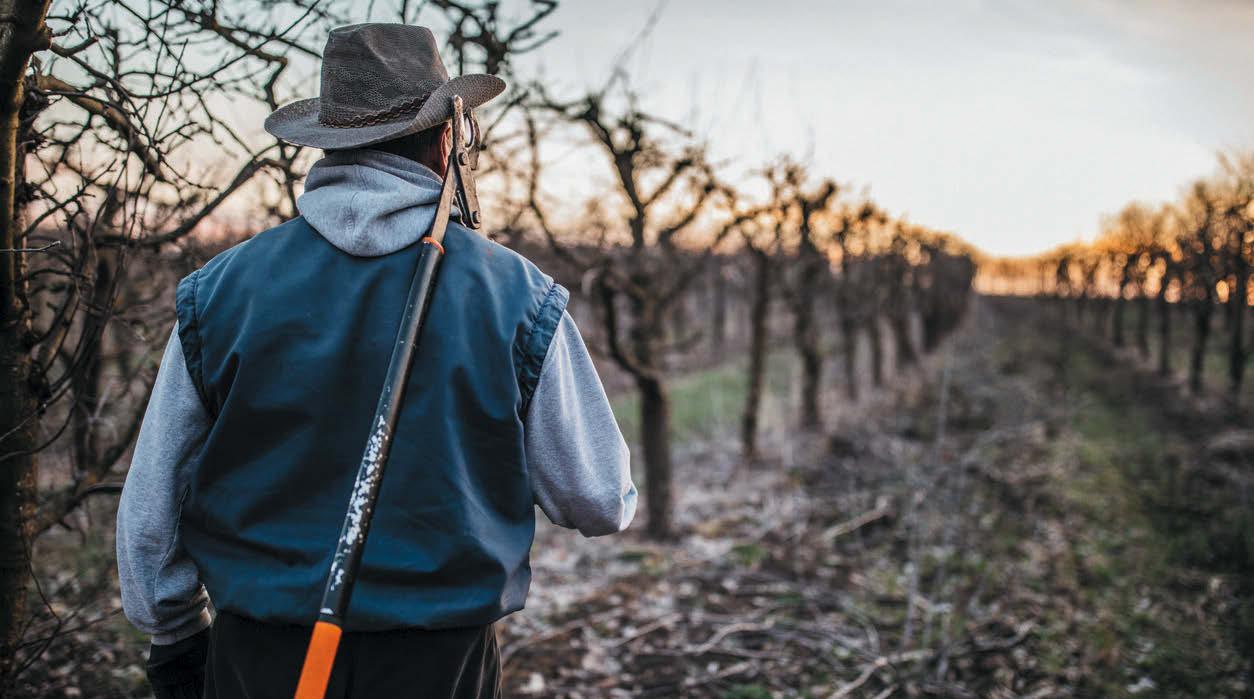
“When I can work, I work seven days straight and can earn $500 per week. Now, there’s barely enough money to pay the rent.”
legal, medical, education and other resources and distributed more than 100 boxes and bags of food. FIV volunteers and congregational partners also surveyed more than 130 families concerning food insecurity and medical needs.
Reyes has become an active volunteer for the organization. He and his wife have been involved in the agency’s Know Your Rights forums and Ready Rep disaster preparedness outreach. He has also been part of FIV’s food distribution efforts for families separated this year by harsh immigration policies and for farm workers afraid to go to work.
Silvia Romano, a community organizer with FIV, says that although Reyes cannot help load and unload food supplies collected for families, he does assist with sorting items and driving to make deliveries.
“I admire his sense of responsibility and his consistency,” Romano says. “He is always punctual, very dedicated to serving the community and ready to help with anything we need.”
She says his volunteer contributions are especially appreciated given his health problems and worries about threats to his medical coverage.
“He has been suffering and is worried, which causes mental distress,” she said. “Medi-Cal is essential to his life.”
BY KEN SMITH

Central to the Sikh religion and way of life is the concept of seva—selfless service performed for the greater good of mankind, with no expectation of reward or personal gain. It’s a sacred tradition taught and practiced from childhood, and can be carried out in a myriad of ways—from cleaning the local gurdwara to feeding the unhoused to philanthropic giving.
“Seva is central to all of our programming,” says Jaskeet Kaur, Fresno County community organizer for the Jakara Movement, a grassroots communitybuilding organization dedicated to empowering, educating, and organizing working-class Punjabi Sikhs and other marginalized communities. Much of Jakara’s work involves youth engagement, and Kaur—who oversees roughly a dozen chapters of the student enrichment-focused Sikh Honors & Service Society—says much of the work is different manifestations of seva.
“Each club allows students to complete and learn about service within their own communities and redefine what seva may look like,” says Kaur.”
Kaur says the concept likewise applies to Jakara’s activism and community engagement: “When you’re going door to door in your neighborhood to make neighbors aware of what’s happening locally, or inviting them to events like our monthly farmers’ market or providing resources for your community … that is seva.”
Speaking from experience, Kaur says that the Jakara Movement plays an important role in the lives of many first-generation Punjabi immigrants like herself—in the Central Valley and statewide— beginning from a young age. She started going to day camps hosted by the organization when she was 7 years old. She got more involved as
“In many families, many new immigrants are more aware of what’s going on in Punjab than what’s happening in their own neighborhoods. That’s a bridge that we’re trying to cross. It’s really important to me that we’re engaging youth because we know they will take those conversations home.”
Jaskeet Kaur
a student at Fresno State, where she became a leader in Jakara’s Sikh Collegiate Federation, and joined the staff after graduating in 2020.
While in college, Kaur held an internship at Fresno City Hall (“Also thanks to Jakara,” she says), which gave her insight that fueled her passion for community engagement and facilitating change: “It opened my eyes to just how few Punjabis there were, not just like at an elected level, but even behind the scenes at the administrative level.”
Kaur says that Jakara Movement’s youth engagement is not just important for young people, but for the larger Punjabi community. Not only does it give young people, and especially students, support they might not find elsewhere, but she explains that young people play an important role in Punjabi families.
“In many families, many new immigrants are more aware of what’s going on in Punjab than what’s happening in their own neighborhoods. That’s a bridge that we’re trying to cross. It’s really important to me that we’re engaging youth because we know they will take those conversations home.”
For more information about Jakara Movement, go to www.jakara.org.
After decades of living without clean drinking water, motherdaughter activists make headway in East Orosi
BY DOROTHY KORBER
Miriam Sanchez grew up watching her mom, Bertha Diaz, fight for clean drinking water in East Orosi, their Central Valley hometown. Now Miriam is on the front lines of that fight—and the activist mother-daughter team are hoping to see progress at last.
Set in the orange groves of Tulare County, East Orosi is a farming community of around 700 residents. For decades, Sanchez says, their drinking water has been contaminated by dangerous levels of agricultural nitrates seeping into the soil.
“Everybody knows that our water is not drinkable here,” she says. “It’s only used for cleaning and irrigating outside. For drinking, my family depends on six five-gallon bottles delivered every two weeks.” The bottled water is provided through a regional program paid for by polluters.
East Orosi is not alone. Four hundred other water systems serving 843,680 people in California fail to supply safe water, according to current statistics from the State Water Resources Control Board.
While folks in East Orosi are lugging five-gallon bottles, their neighbors in the adjacent Orosi Public Utilities District have clean water flowing from their taps. In 2020, the Water Board ordered the two water districts to consolidate, which would solve East Orosi’s problems. Despite the order, inertia and disagreements between the two local districts have stalled the consolidation.
“This situation is representative of how small rural water systems struggle,” says Maraid Jimenez, communications manager of the Community Water Center (CWC) Action Fund, a statewide clean-water advocacy group based in Visalia. “Often what is missing is the political will to get things done.”
Now, change is in the wind for East Orosi.
After years of attending water meetings as an outsider looking in, Sanchez was recently appointed
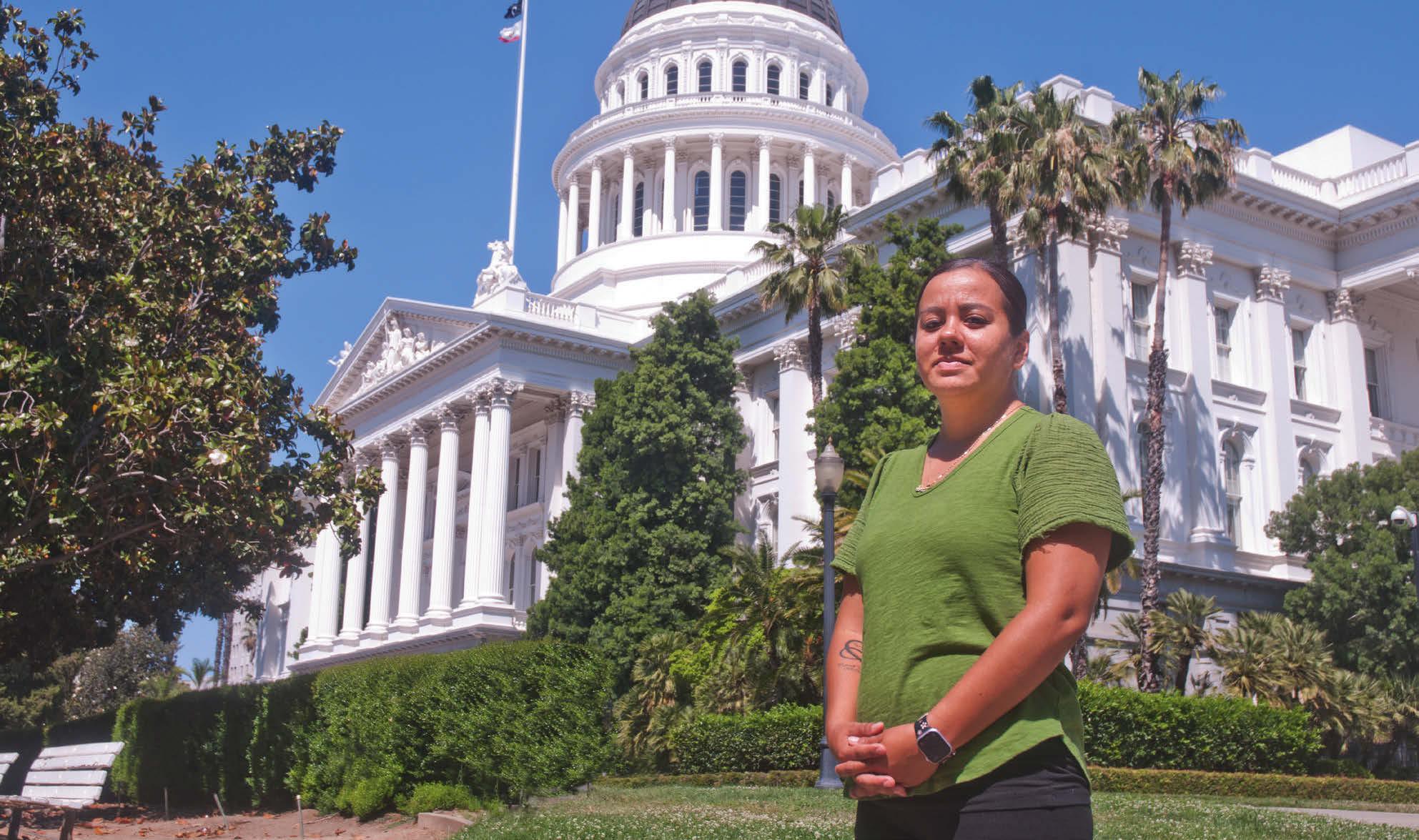
to the board of the East Orosi Community Services District. She joins two other community activists on the board, Carlos Sanchez and Cynthia Ruiz. The three are shifting the momentum toward solving their town’s previously intractable problems.
“It’s so important to have community partners on these water boards,” says Jimenez. “They personally understand the need to be able to turn on the tap and use that water to drink, to cook, and to bathe.”
Three community members—Angela RuizAlvarez, Nancy Cerda Serna, and Serafin Brito— were elected to the Orosi Public Utilities District Board last November, constituting a majority on that board to work with the neighboring East Orosi panel.
Jimenez praised Sanchez for her energy and dedication.
“Miriam is a great point of reference for what it means for these activists to be involved,” she says. “Miriam is so willing to learn and she wants to be part of the solution.”
Sanchez, 34, remembers tagging along as a child when her mother participated in the AGUA Coalition (la Asociación de Gente Unida por el
“This situation is representative of how small rural water systems struggle. Often what is missing is the political will to get things done.”
Agua, or the Association of People United for Water). Now her own children watch her in action on the East Orosi Community Services Board.
“My mom is proud of me,” says Sanchez. “I guess activism runs in the family. My 9-year-old daughter asks me, ‘Is there a water meeting today? I like going!’ I tell her it’s really important for our community to have safe drinking water so our future generations don’t have to worry about it.”
For more information about Community Water Center Action Fund and the ongoing fight for clean water, visit www.ommunitywatercenter.org.
BY ANNE STOKES
As a community organizer and regional field director with Communities for a New California Education Fund (CNC EF), Monserrath Sanchez is no stranger to knocking on doors. Two years ago, while canvassing door-to-door to organize a neighborhood committee on rent control, she connected with a woman hesitant to open up, yet interested in what Sanchez had to say.
“She reminded me of my aunt, my tía, but a little reserved,” Sanchez recalls. “She wanted to learn more but just felt like it wasn’t for her. And so I just asked her, ‘How are you doing? How’s your day?’ I really was just there to listen to what was going on in her life.”
The woman was open to learning about rent control, recognizing how it could help not just her, but her family and neighbors. The two talked about how rent increased every year while her fixed income did not.
“There was a moment where she was a bit quiet then said, ‘You know, you knocked on my door and I
wasn’t going to answer because I thought you were going to try to sell me something or tell me what I care about. But in this conversation, all you did was ask me what I thought was important or what I cared about.”
Sanchez says making personal connections isn’t just an outreach tactic—it’s foundational to CNC EF’s mission to advance economic prosperity and community health in underserved communities.
CNC EF is one of several member groups of MOVE the Valley (MTV), a coalition of civic-minded nonprofits focused on social solutions through grassroots organizing and non-partisan voter engagement.
“Everything that we do is grounded in listening, trust, relationship building and centering the voices of those who are most impacted,” Sanchez says. “When we knock on a door, we are not just starting a conversation. Every door that is opened is a chance to build trust, to lift hopeful voices that have been ignored for too long, and to continue to grow a neighborhood rooted in dignity.”
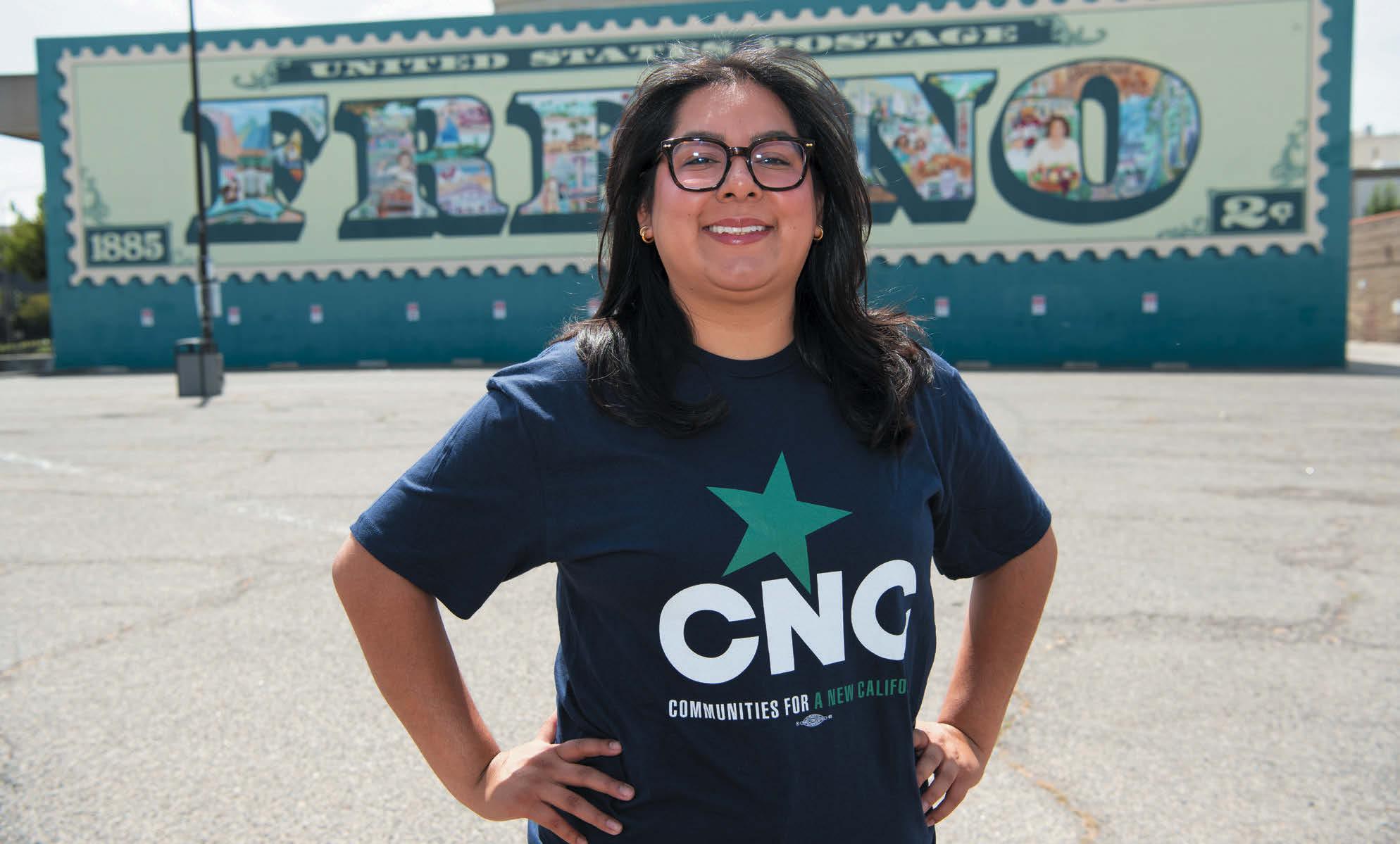
“Every door that is opened is a chance to build trust, to lift hopeful voices that have been ignored for too long, and to continue to grow a neighborhood rooted in dignity.”
Monserrath Sanchez Regional Field Director, Communities for a New California Education Fund
Jagmeet Singh, community and youth organizer for fellow MTV member group Jakara Movement, helps plan civic engagement efforts like door-todoor canvassing throughout the state. He notes these efforts were stepped up earlier this year, when a spike in ICE raids in the Bakersfield area prompted Jakara to deliver Know Your Rights information and pamphlets to the Punjabi Sikh community they primarily serve.
“We’ve actually seen this very interesting synergy between young folks and some of our elders and our grandparents in our community, where they feel even more tied in, because our youth are tied in, and they’re getting energy from them,” Singh says.
“It’s been this very powerful experience to just be a part of this and be able to work with these youth, and give them these tools and these abilities, to empower their voices. And they just take it and run.”
To learn more, visit Communities for a New California Education Fund’s website website at www.cncedfund.org and Jakara Movement at www.jakara.org
Regarding the value of connecting with community members through face-to-face interaction, Monserrath Sanchez quotes Secretary-General of the United Nations António Guterres: “Hope unites us, dignity is our moral compass.”
MOBILIZE, ORGANIZE, VOTE, EMPOWER

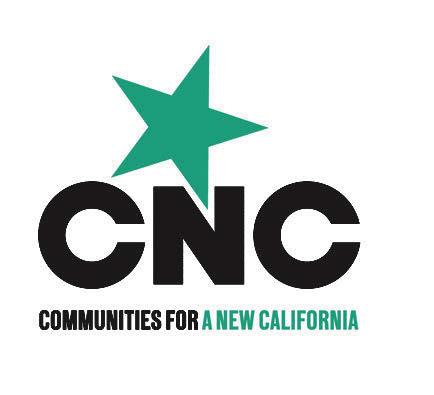
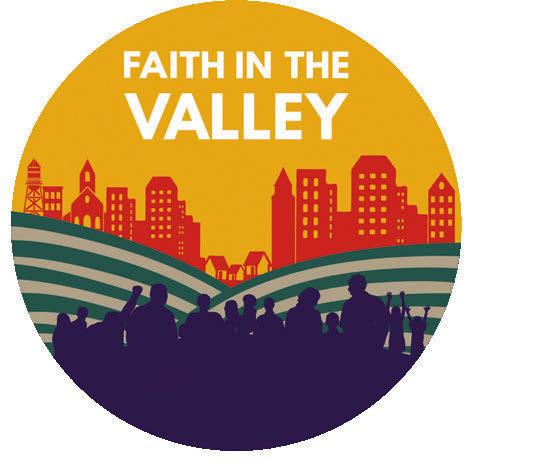
MOVE the Valley (Mobilize, Organize, Vote, Empower) is a nonpartisan multilingual, multi-ethnic, and intergenerational coalition of grassroots organizations dedicated to advancing civic participation in California’s Central Valley.
MOVE’s member organizations work together to expand access to democracy, strengthen community leadership and amplify the electoral voices of historically marginalized communities through coordinated outreach, education, and get-out-the-vote campaigns in nine counties in the San Joaquin Valley and Sacramento areas.
MOVE the Valley current partner organizations are listed below
COMMUNITIES FOR A NEW CALIFORNIA EDUCATION FUND
www.cncedfund.org
Sacramento: 517 7th St. Fresno: 814 N Van Ness Ave. Merced: 928 W 18th St. Indio: 83135 Requa Ave. Suite 3 209-354-4389

FAITH IN THE VALLEY faithinthevalley.org
Stockton: 2027 E Harding Way Fresno: 1955 Broadway St Merced, Stanislaus & Kern: 209-201-8087 559-290-9352 info@faithinthevalley.org
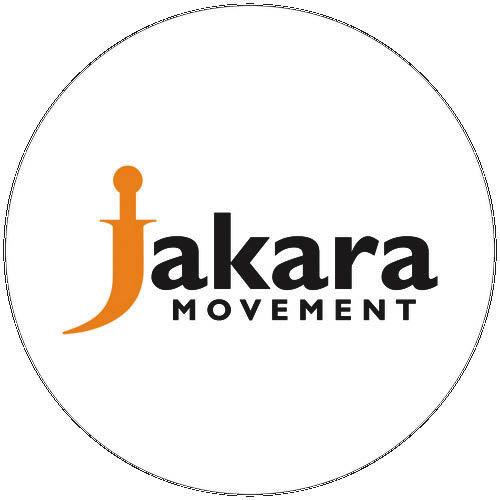
For more information:
HMONG INNOVATING POLITICS
hipcalifornia.com
Sacramento: 4625 44th St. Room 12
Fresno: 1345 E Bulldog Ln 916-382-0177 info@hipcalifornia.com
JAKARA MOVEMENT
www.jakara.org 6089 N 1St Street, Suite 102 Fresno, CA 93710-5464 1-888-JAKARA-1 info@jakara.org
Visit www.movethevalley.org to see what you can do to help spread voter awareness throughout the Central Valley.